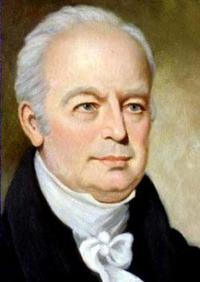
John Rutledge
Actor
John Rutledge (September 17, 1739 – July 23, 1800) was an Associate Justice of the Supreme Court of the United States and also its second Chief Justice. Additionally, he served as the first President of South Carolina and later as its first governor after the Declaration of Independence. Born in Charleston, South Carolina, Rutledge established a legal career after studying at Middle Temple in the City of London. He was the elder brother of Edward Rutledge, a signatory of the Declaration of Independence. Rutledge served as a delegate to the Stamp Act Congress, which protested taxes imposed on the Thirteen Colonies by the Parliament of Great Britain. He also served as a delegate to the Continental Congress before being elected as Governor of South Carolina. He served as governor during much of the American Revolutionary War. After briefly returning to Congress, Rutledge was appointed to the South Carolina Court of Chancery. He was a delegate to the 1787 Philadelphia Convention, which wrote the United States Constitution. During the convention, he served as Chairman of the Committee of Detail, which produced the first full draft of the Constitution. The following year he also participated in the South Carolina convention to ratify the Constitution. In 1789, President George Washington appointed Rutledge as one of the inaugural Associate Justices of the Supreme Court of the United States. Rutledge left the Supreme Court in 1791 to become Chief Justice of the South Carolina Court of Common Pleas and Sessions. He returned to the Supreme Court, this time as Chief Justice, following the resignation of John Jay in June 1795. As the vacancy came during a long Senate recess, Washington named Rutledge as the new chief justice by a recess appointment. When the Senate reconvened in December 1795, it rejected Rutledge's nomination by a 10–14 vote. Rutledge resigned his commission shortly thereafter, and withdrew from public life until his death in 1800. He holds the record for the shortest tenure of any Chief Justice. His was the first Supreme Court nomination to be rejected by the Senate, and he remains the only "recess appointed" justice not to be subsequently confirmed by the Senate.
John Rutledge (September 17, 1739 – July 23, 1800) was an Associate Justice of the Supreme Court of the United States and also its second Chief Justice. Additionally, he served as the first President of South Carolina and later as its first governor after the Declaration of Independence.
Born in Charleston, South Carolina, Rutledge established a legal career after studying at Middle Temple in the City of London. He was the elder brother of Edward Rutledge, a signatory of the Declaration of Independence. Rutledge served as a delegate to the Stamp Act Congress, which protested taxes imposed on the Thirteen Colonies by the Parliament of Great Britain. He also served as a delegate to the Continental Congress before being elected as Governor of South Carolina. He served as governor during much of the American Revolutionary War.
After briefly returning to Congress, Rutledge was appointed to the South Carolina Court of Chancery. He was a delegate to the 1787 Philadelphia Convention, which wrote the United States Constitution. During the convention, he served as Chairman of the Committee of Detail, which produced the first full draft of the Constitution. The following year he also participated in the South Carolina convention to ratify the Constitution.
In 1789, President George Washington appointed Rutledge as one of the inaugural Associate Justices of the Supreme Court of the United States. Rutledge left the Supreme Court in 1791 to become Chief Justice of the South Carolina Court of Common Pleas and Sessions. He returned to the Supreme Court, this time as Chief Justice, following the resignation of John Jay in June 1795. As the vacancy came during a long Senate recess, Washington named Rutledge as the new chief justice by a recess appointment. When the Senate reconvened in December 1795, it rejected Rutledge's nomination by a 10–14 vote. Rutledge resigned his commission shortly thereafter, and withdrew from public life until his death in 1800. He holds the record for the shortest tenure of any Chief Justice. His was the first Supreme Court nomination to be rejected by the Senate, and he remains the only "recess appointed" justice not to be subsequently confirmed by the Senate.
John Rutledge Movies & TV Shows - Watch Online
